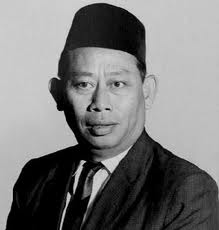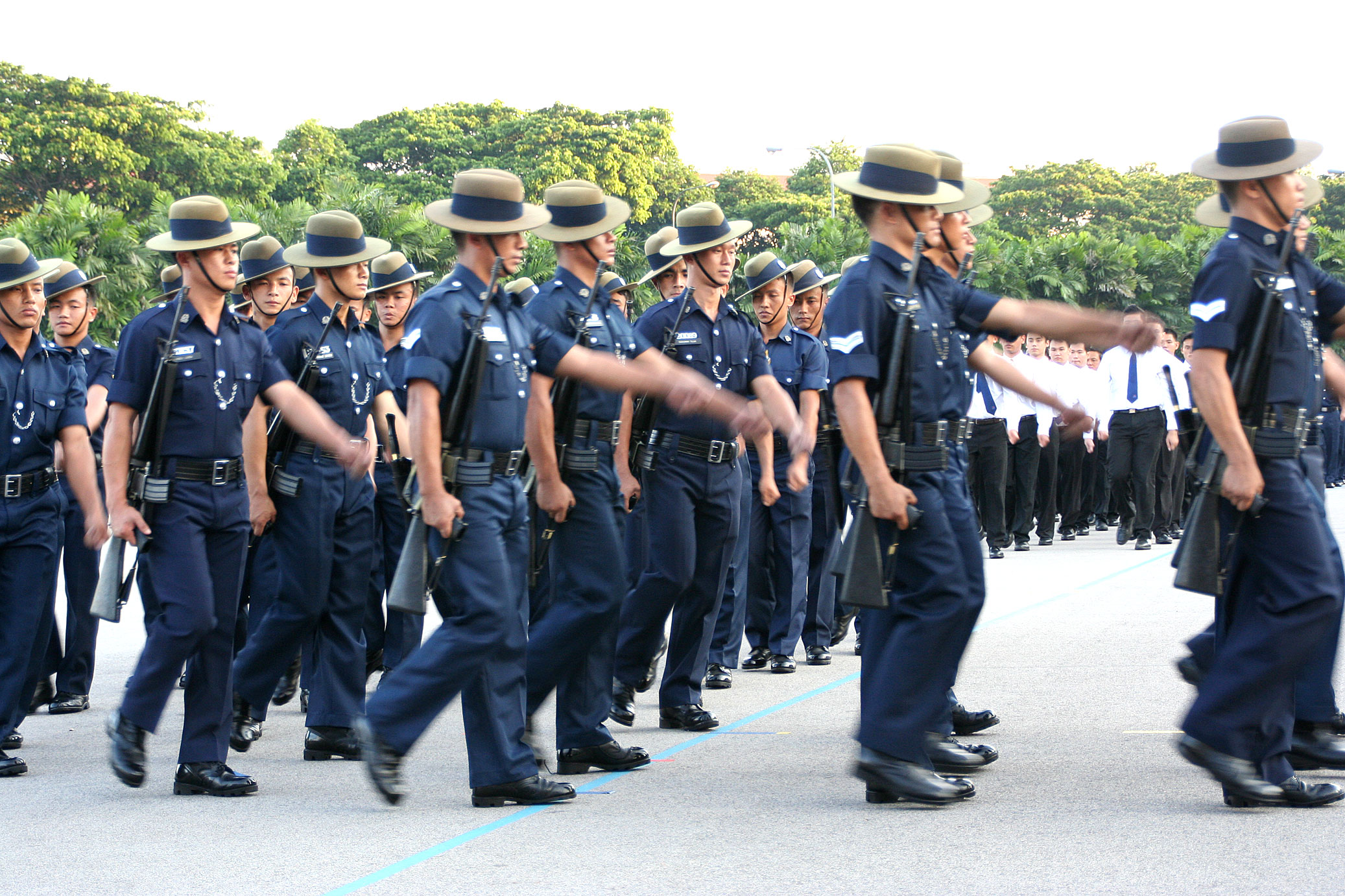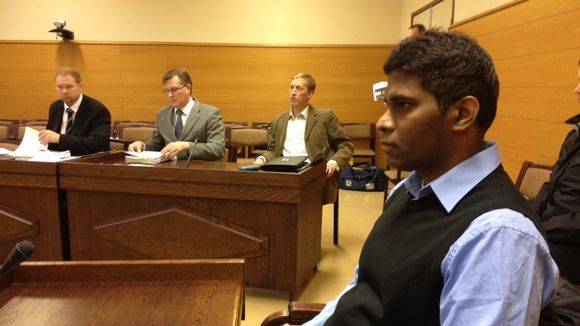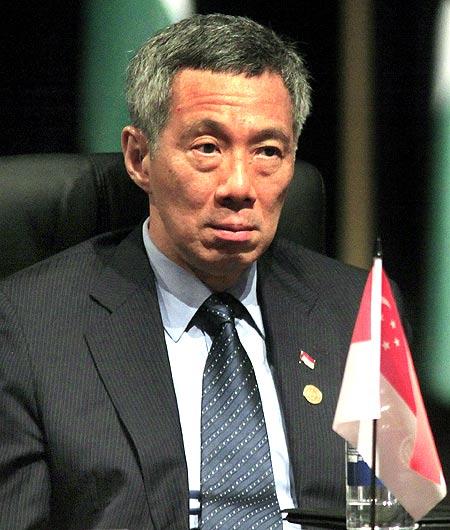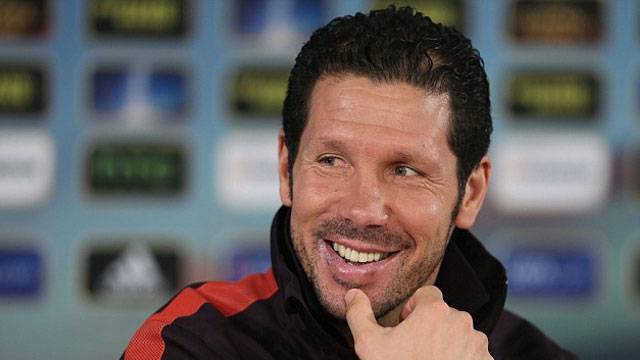The Commission of Inquiry (COI) into the Little India riots which commenced last week, got down to serious stuff last Friday with Deputy Commissioner T Rajakumar taking the stand. I had posted a few articles on the riot and the police failings previously, you can read it here,here, and also here.
The gist of Friday's proceedings can be found in this link. Although there's some ways to go, I have been vindicated with some of the things I wrote. In a nutshell, there were a series of mistakes and mis-steps all the way up the Police management. After both the COI Chairman, former Justice GP Selvam and board member, former Commissioner Tee Tua Bah, ripped through DC Rajakumar, I believe the 1 point I have making for so long - has become painfully clear - the Police Commissioner (CP) Ng Joo Hee should be a man and accept responsibility for the police failings and tender his resignation.
The 4 man Commission of Inquiry, includes Justice Selvam and former CP, Tee Tua Bah (the top 2)
I don't know whether the CP is scheduled to testify at the COI, but I doubt it, as what DC Rajakumar has given in evidence would surely be the same that the CP himself would attest to. This begs the question, why was DC Rajakumar made to take the stand to explain the police handling of the riot? Surely CP Ng should have testified instead, faced the commission and given the breakdown of police action and procedures? Why send his deputy? After all, it was CP Ng who rushed to praise his officers conduct and handling following the aftermath of the incident. If he can paint a rosy picture, why can't he also have the guts to stand up to it, give an explanation and be grilled over it? These are not some opposition MPs or their supporters who are questioning him. This is a trained High Court Judge with years of experience of conducting trials and a former Commissioner, who helmed the very same force CP Ng is leading today. They are not biased, they are from the same establishment as himself and they have nothing to gain by grilling him and exposing the flaws.
Deputy Commissioner T Rajakumar 'took the proverbial bullet' for his boss at the COI.
Let's look at some aspects of DC Rajakumar's testimony that's clearly troubling. He listed 3 causes for the riot:
1) The accident
2) The body of the victim adding to a highly charged scene
3) The drunkenness caused by alcohol.
In a stunning rebuke, Justice Selvam made DC Rajakumar read out like a student before a teacher, Section 18 of the Miscellaneous Act which deals with drunken behaviour resulting in incapacity - a seizable offence. Pity DC Rajakumar, it should have been CP Ng that needed this dose of public shaming. Justice Selvam chastised the police for turning a blind eye to this problem when numerous reports and complaints about it have been made over a number of years. In his words, 'the police have done nothing!' He suggested that offenders should be warned and repatriated if they continue to flout the law. (This is clearly a point the Govt must seriously consider, there should be zero tolerance for foreigners be they blue or white collar workers, or from whatever class of society or position, who flout and break laws, they should be repatriated and banned from working here for a number of years, if not permanently).
It doesn't look like hundreds of rioters were attacking this patrol car (one of the first attacked), yet the officers at the scene made no attempt to stop them.
Justice Selvam slammed the police officers for not actively dealing with the initial rioting and instead taking cover and manning exit points. He rightly pointed out that at that juncture only 25 were 'active rioters' whereas there were nearly 100 officers already on the ground. The decision not to engage was made by Tanglin Commander Lu Yeow Lim, it was his judgment, said DC Rajakumar. ' It was poor judgment' remarked the Chairman. It gave the rioters the impression the police were not doing anything and believing they had the freedom to do as they pleased, which they did with an ever increasing number.
Accelerated promotions they want and taking credit for their men's work, but Commanders like Lu Yeow Lim cannot make decisions under pressure. And when they do, it's a poor one.
Then DC Rajakumar mentioned 'that gem' that has been CP Ng's constant refrain - the police chose not to use force because the situation was not life threatening. Even worse, he read from police protocol that in such situations the police were supposed to protect life and property, prevent public disorder, maintain a 'moral high ground and be publicly responsible for their actions.'
To sum up with a word from my British friend - 'Bollocks'. CP Tee observed that the police did not protect the lives of bystanders, diners and civilians. In a straight laced reply , Justice Selvam said the police did nothing to protect the lives of innocent people.
CP Ng Joo Hee should be an insurance salesman, he has a positive thing to say about every bad thing, like the murder of 2 civilians by a police officer.
They pressed home the points that the failure to do anything meant the rioters were not spooked but got emboldened, and as mentioned by my posts, the police did not learn anything from the London riots of 2011 nor did they study the causes of rioting in India in similar incidents involving fatal traffic accidents. 'A lot of things were wrong,' barked CP Tee to a flustered DC Rajakumar, who was at times at a loss to give a meaningful explanation to the conduct of his officers. He even mentioned a failure of training and lack of equipment. Surely all this has to reflect on police commanders in the various divisions and their utter lack of supervision by the man responsible for them - CP Ng.
The riots in London and other English cities in 2011. Was there something to learn for the SPF? Apparently not, it couldn't possibly happen in well policed Singapore.
There was a very poor line of communication on the ground and the command centres at Police Headquarters. As I reflected on the delay to activate, it took almost 18 minutes for the Special Operations Command (SOC) to be activated after the initial request, and the activating officer, Deputy Director Ops mulled for 12 minutes before giving the go ahead. He checked and double checked before agreeing! Why can't senior officers on the ground make that call and the Director should back his judgment up by immediately activating the SOC. That's why we commission senior officers - to make the tough and hard decisions - no to sit in an office, bark orders and take credit for their men's good actions. If a senior officer makes a wrong call, let him answer for it, but do not shackle him and prevent him from making that call.
A convoluted activation procedure and indecisiveness, coupled with poor deployment meant that the SOC took nearly an hour to get to the scene. Luckily no one died in the interim.
The SOC took 38 minutes to arrive (the first troop) and the second one another 33 minutes later. Therefore it took nearly an hour when the request was conveyed to activate them and for them to actually arrive - far too long. DC Rajakumar said it's not possible to have the SOC on the ground at Little India every weekend, they were deployed there 16 times in 2013. This is a poor excuse. Out of 52 Sundays, and adding in another 11 or more public holidays, making 63 days of large crowds in Little India, the SOC was only there 16 times, barely a quarter. No one is suggesting they have to be physically present every time, but surely they could be made to standby at Tanglin Police Station, a mere 500 metres away. And it was proven how effective they and the Gurkha Contigent were. It took them around 15 minutes to gain a foothold and an hour to control the riot.
Watching the show of the year. Despite the injuries to police and SCDF officers, and the large destruction of property, these officers were happy to stay put and let the rioters have 'their fun'.
The officers on the ground prior to SOC's arrival were in flux, there was no leadership provided by DAC Lu or his senior officers. They did nothing! When the first patrol car was torched they did nothing, this emboldened the riotersand they then turned their fury on other Govt vehicles. Instead of trying to stop them, the police officers ran from an ambulance - emboldening the rioters further. Dozens of police and SCDF staff were injured and still nothing was even attempted. The initial scene as DC Rajakumar remarked - the body of the victim lying there, and yet nothing was done to show that the police were on top of the situation by detaining the driver and coordinator.
Although eventually found not at fault for the fatal accident, bus driver Lee Kim Huat (top)and his coordinator, should have been arrested and removed from the scene by the initial officers. This would show the potential rioters that some form of justice was taking place.
No training was provided, no anticipation despite warning signs in other countries, no understanding of the ground, no traffic control, poor judgment, poor communications, utter hesitation and indecisiveness, amongst others. And what does CP Ng say to all this - my officers handled it well and deserve praise for exercising restraint! He should thank his lucky stars that no innocent civilian got injured or got killed, and no public servant suffered such a fate. Who's going to answer if a brick struck an SCDF officer and killed him? Who answers for the millions lost due to property damage - public property paid by citizens and private property?
Proud to received awards, our dear Commissioner. But when failure occurs, he refuses to take the blame. The words by Justice Selvam - 'This is not acceptable' should be sufficient cause for him to accept responsibility and resign.
As Justice Selvam remarked, 'What happened is not acceptable!' Do you hear that Mr Commissioner? Can you still hold your head up high and defend your men especially your senior officers and commanders? They answer to you and reflect you, in the manner they go about their duties. Their failures and yours are painfully obvious to a trained judge and former Commissioner, and obvious now to all of us. I don't know if the COI will recommend your removal, but surely as the person responsible for the whole force, such a scathing assessment of the failures on and before December 8th, together with other shameful acts perpetrated by officers under your command, isn't it obvious now to you, that you should accept responsibility and resign? Or have you no shame?
The gist of Friday's proceedings can be found in this link. Although there's some ways to go, I have been vindicated with some of the things I wrote. In a nutshell, there were a series of mistakes and mis-steps all the way up the Police management. After both the COI Chairman, former Justice GP Selvam and board member, former Commissioner Tee Tua Bah, ripped through DC Rajakumar, I believe the 1 point I have making for so long - has become painfully clear - the Police Commissioner (CP) Ng Joo Hee should be a man and accept responsibility for the police failings and tender his resignation.
The 4 man Commission of Inquiry, includes Justice Selvam and former CP, Tee Tua Bah (the top 2)
I don't know whether the CP is scheduled to testify at the COI, but I doubt it, as what DC Rajakumar has given in evidence would surely be the same that the CP himself would attest to. This begs the question, why was DC Rajakumar made to take the stand to explain the police handling of the riot? Surely CP Ng should have testified instead, faced the commission and given the breakdown of police action and procedures? Why send his deputy? After all, it was CP Ng who rushed to praise his officers conduct and handling following the aftermath of the incident. If he can paint a rosy picture, why can't he also have the guts to stand up to it, give an explanation and be grilled over it? These are not some opposition MPs or their supporters who are questioning him. This is a trained High Court Judge with years of experience of conducting trials and a former Commissioner, who helmed the very same force CP Ng is leading today. They are not biased, they are from the same establishment as himself and they have nothing to gain by grilling him and exposing the flaws.
Deputy Commissioner T Rajakumar 'took the proverbial bullet' for his boss at the COI.
Let's look at some aspects of DC Rajakumar's testimony that's clearly troubling. He listed 3 causes for the riot:
1) The accident
2) The body of the victim adding to a highly charged scene
3) The drunkenness caused by alcohol.
In a stunning rebuke, Justice Selvam made DC Rajakumar read out like a student before a teacher, Section 18 of the Miscellaneous Act which deals with drunken behaviour resulting in incapacity - a seizable offence. Pity DC Rajakumar, it should have been CP Ng that needed this dose of public shaming. Justice Selvam chastised the police for turning a blind eye to this problem when numerous reports and complaints about it have been made over a number of years. In his words, 'the police have done nothing!' He suggested that offenders should be warned and repatriated if they continue to flout the law. (This is clearly a point the Govt must seriously consider, there should be zero tolerance for foreigners be they blue or white collar workers, or from whatever class of society or position, who flout and break laws, they should be repatriated and banned from working here for a number of years, if not permanently).
It doesn't look like hundreds of rioters were attacking this patrol car (one of the first attacked), yet the officers at the scene made no attempt to stop them.
Justice Selvam slammed the police officers for not actively dealing with the initial rioting and instead taking cover and manning exit points. He rightly pointed out that at that juncture only 25 were 'active rioters' whereas there were nearly 100 officers already on the ground. The decision not to engage was made by Tanglin Commander Lu Yeow Lim, it was his judgment, said DC Rajakumar. ' It was poor judgment' remarked the Chairman. It gave the rioters the impression the police were not doing anything and believing they had the freedom to do as they pleased, which they did with an ever increasing number.
Accelerated promotions they want and taking credit for their men's work, but Commanders like Lu Yeow Lim cannot make decisions under pressure. And when they do, it's a poor one.
Then DC Rajakumar mentioned 'that gem' that has been CP Ng's constant refrain - the police chose not to use force because the situation was not life threatening. Even worse, he read from police protocol that in such situations the police were supposed to protect life and property, prevent public disorder, maintain a 'moral high ground and be publicly responsible for their actions.'
To sum up with a word from my British friend - 'Bollocks'. CP Tee observed that the police did not protect the lives of bystanders, diners and civilians. In a straight laced reply , Justice Selvam said the police did nothing to protect the lives of innocent people.
CP Ng Joo Hee should be an insurance salesman, he has a positive thing to say about every bad thing, like the murder of 2 civilians by a police officer.
They pressed home the points that the failure to do anything meant the rioters were not spooked but got emboldened, and as mentioned by my posts, the police did not learn anything from the London riots of 2011 nor did they study the causes of rioting in India in similar incidents involving fatal traffic accidents. 'A lot of things were wrong,' barked CP Tee to a flustered DC Rajakumar, who was at times at a loss to give a meaningful explanation to the conduct of his officers. He even mentioned a failure of training and lack of equipment. Surely all this has to reflect on police commanders in the various divisions and their utter lack of supervision by the man responsible for them - CP Ng.
The riots in London and other English cities in 2011. Was there something to learn for the SPF? Apparently not, it couldn't possibly happen in well policed Singapore.
There was a very poor line of communication on the ground and the command centres at Police Headquarters. As I reflected on the delay to activate, it took almost 18 minutes for the Special Operations Command (SOC) to be activated after the initial request, and the activating officer, Deputy Director Ops mulled for 12 minutes before giving the go ahead. He checked and double checked before agreeing! Why can't senior officers on the ground make that call and the Director should back his judgment up by immediately activating the SOC. That's why we commission senior officers - to make the tough and hard decisions - no to sit in an office, bark orders and take credit for their men's good actions. If a senior officer makes a wrong call, let him answer for it, but do not shackle him and prevent him from making that call.
A convoluted activation procedure and indecisiveness, coupled with poor deployment meant that the SOC took nearly an hour to get to the scene. Luckily no one died in the interim.
The SOC took 38 minutes to arrive (the first troop) and the second one another 33 minutes later. Therefore it took nearly an hour when the request was conveyed to activate them and for them to actually arrive - far too long. DC Rajakumar said it's not possible to have the SOC on the ground at Little India every weekend, they were deployed there 16 times in 2013. This is a poor excuse. Out of 52 Sundays, and adding in another 11 or more public holidays, making 63 days of large crowds in Little India, the SOC was only there 16 times, barely a quarter. No one is suggesting they have to be physically present every time, but surely they could be made to standby at Tanglin Police Station, a mere 500 metres away. And it was proven how effective they and the Gurkha Contigent were. It took them around 15 minutes to gain a foothold and an hour to control the riot.
Watching the show of the year. Despite the injuries to police and SCDF officers, and the large destruction of property, these officers were happy to stay put and let the rioters have 'their fun'.
The officers on the ground prior to SOC's arrival were in flux, there was no leadership provided by DAC Lu or his senior officers. They did nothing! When the first patrol car was torched they did nothing, this emboldened the riotersand they then turned their fury on other Govt vehicles. Instead of trying to stop them, the police officers ran from an ambulance - emboldening the rioters further. Dozens of police and SCDF staff were injured and still nothing was even attempted. The initial scene as DC Rajakumar remarked - the body of the victim lying there, and yet nothing was done to show that the police were on top of the situation by detaining the driver and coordinator.
Although eventually found not at fault for the fatal accident, bus driver Lee Kim Huat (top)and his coordinator, should have been arrested and removed from the scene by the initial officers. This would show the potential rioters that some form of justice was taking place.
No training was provided, no anticipation despite warning signs in other countries, no understanding of the ground, no traffic control, poor judgment, poor communications, utter hesitation and indecisiveness, amongst others. And what does CP Ng say to all this - my officers handled it well and deserve praise for exercising restraint! He should thank his lucky stars that no innocent civilian got injured or got killed, and no public servant suffered such a fate. Who's going to answer if a brick struck an SCDF officer and killed him? Who answers for the millions lost due to property damage - public property paid by citizens and private property?
Proud to received awards, our dear Commissioner. But when failure occurs, he refuses to take the blame. The words by Justice Selvam - 'This is not acceptable' should be sufficient cause for him to accept responsibility and resign.
As Justice Selvam remarked, 'What happened is not acceptable!' Do you hear that Mr Commissioner? Can you still hold your head up high and defend your men especially your senior officers and commanders? They answer to you and reflect you, in the manner they go about their duties. Their failures and yours are painfully obvious to a trained judge and former Commissioner, and obvious now to all of us. I don't know if the COI will recommend your removal, but surely as the person responsible for the whole force, such a scathing assessment of the failures on and before December 8th, together with other shameful acts perpetrated by officers under your command, isn't it obvious now to you, that you should accept responsibility and resign? Or have you no shame?







.jpg?itok=lIhm_Vdh)






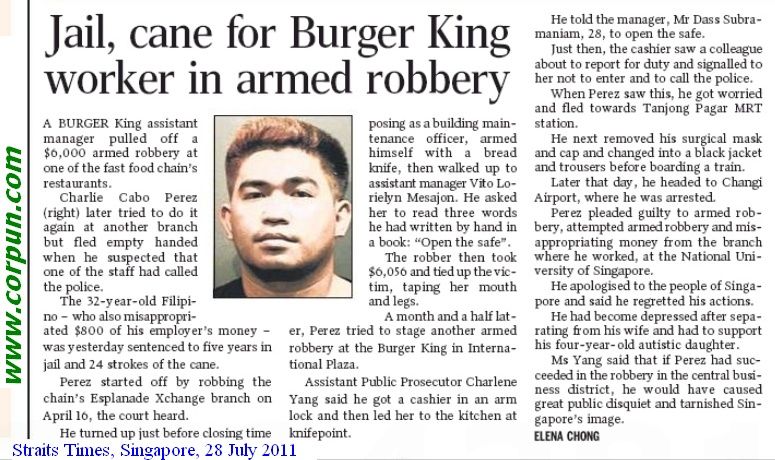



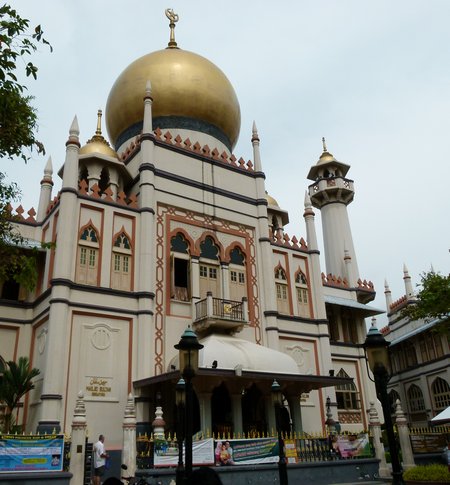
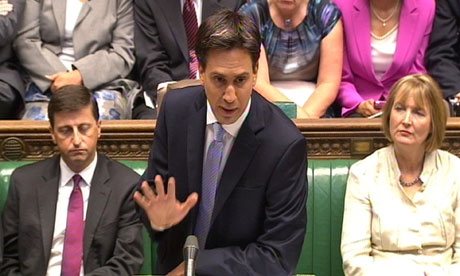

























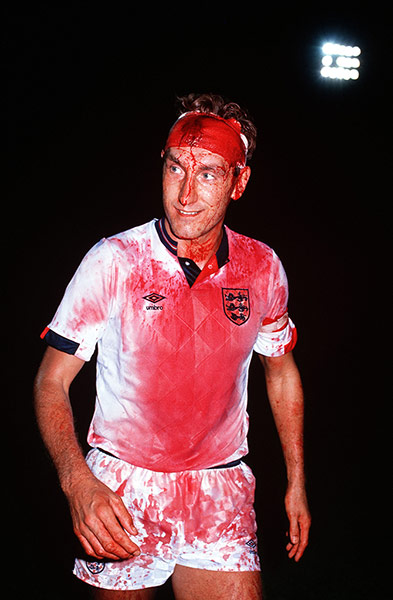










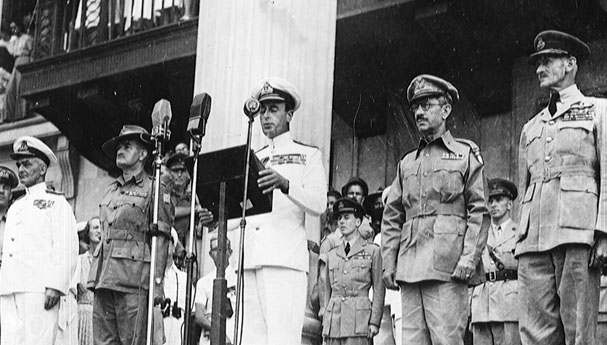








.png/150px-Woods_Hole_Oceanographic_Institution_(emblem).png)





















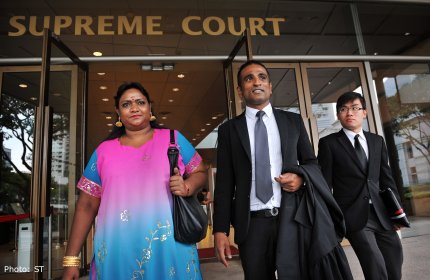


.jpg)


